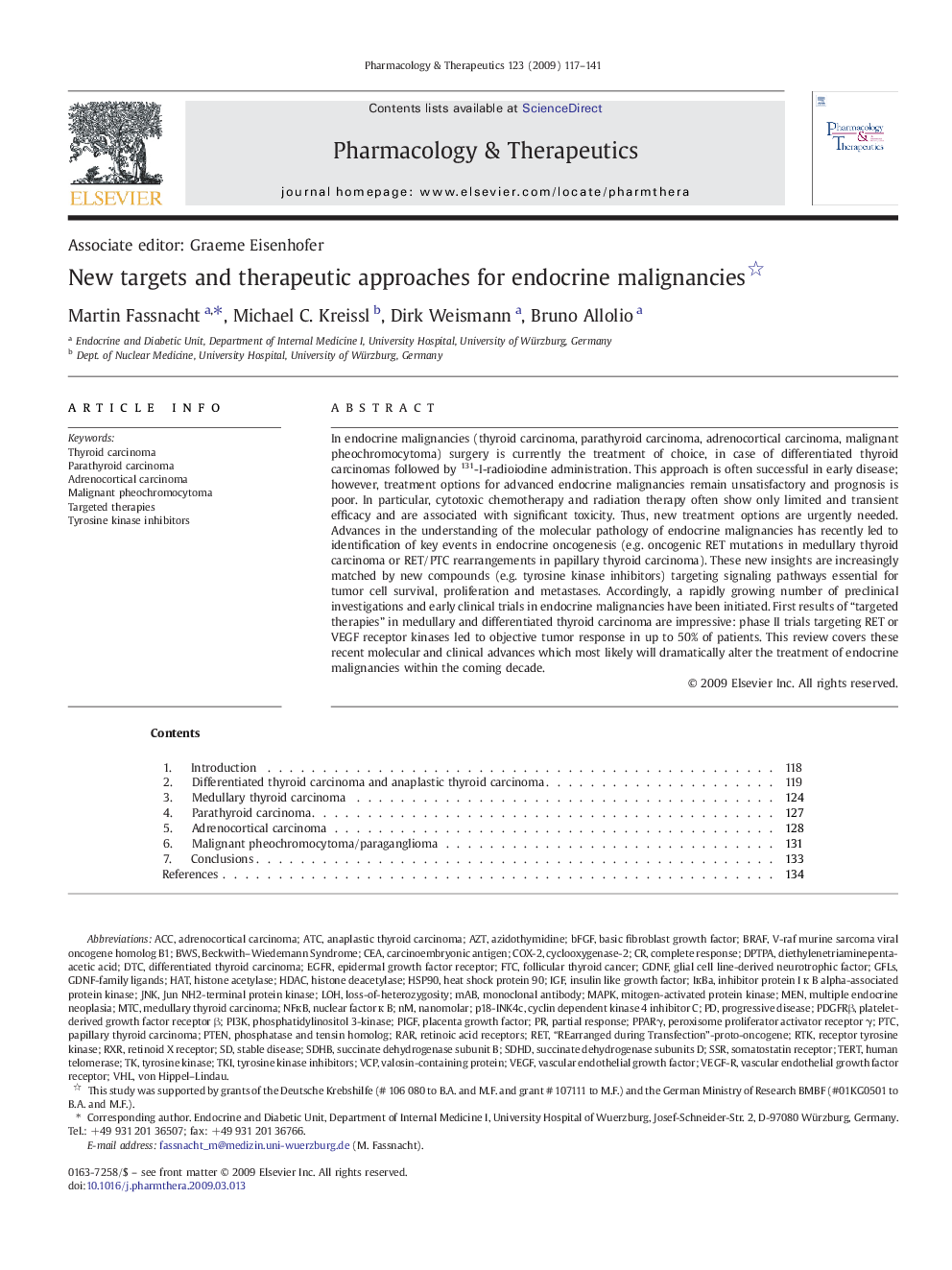| Article ID | Journal | Published Year | Pages | File Type |
|---|---|---|---|---|
| 2563750 | Pharmacology & Therapeutics | 2009 | 25 Pages |
In endocrine malignancies (thyroid carcinoma, parathyroid carcinoma, adrenocortical carcinoma, malignant pheochromocytoma) surgery is currently the treatment of choice, in case of differentiated thyroid carcinomas followed by 131-I-radioiodine administration. This approach is often successful in early disease; however, treatment options for advanced endocrine malignancies remain unsatisfactory and prognosis is poor. In particular, cytotoxic chemotherapy and radiation therapy often show only limited and transient efficacy and are associated with significant toxicity. Thus, new treatment options are urgently needed. Advances in the understanding of the molecular pathology of endocrine malignancies has recently led to identification of key events in endocrine oncogenesis (e.g. oncogenic RET mutations in medullary thyroid carcinoma or RET/PTC rearrangements in papillary thyroid carcinoma). These new insights are increasingly matched by new compounds (e.g. tyrosine kinase inhibitors) targeting signaling pathways essential for tumor cell survival, proliferation and metastases. Accordingly, a rapidly growing number of preclinical investigations and early clinical trials in endocrine malignancies have been initiated. First results of “targeted therapies” in medullary and differentiated thyroid carcinoma are impressive: phase II trials targeting RET or VEGF receptor kinases led to objective tumor response in up to 50% of patients. This review covers these recent molecular and clinical advances which most likely will dramatically alter the treatment of endocrine malignancies within the coming decade.
